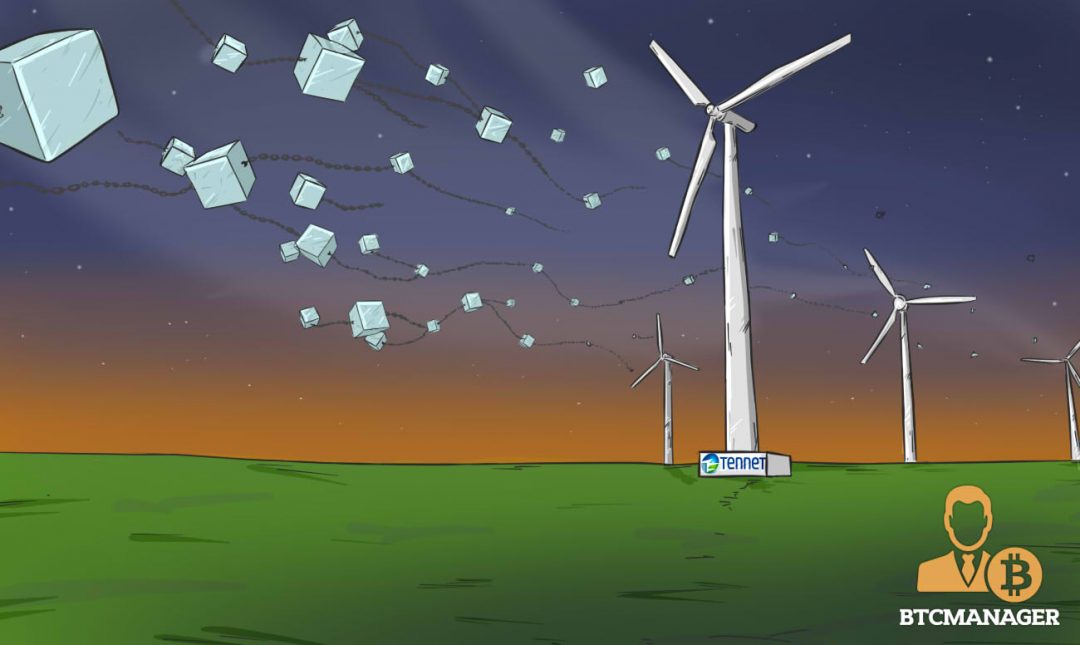European Energy Operator, TenneT, To Use Blockchain For Electricity Security Of Supply

Leading European Electricity Transmission System Operator (TSO) TenneT is spearheading a collaboration between key European energy service providers, Sonnen and Vandebron, powered by IBM’s Hyperledger Fabric-based blockchain to maintain the security of supply of energy for its consumers and prosumers.
Netherlands-based TenneT is one of Europe’s leading energy service providers. It is tasked with keeping the Dutch energy grid in good working capacity and ensuring a constant supply of electricity to its approximately 41 million end users. It is also in charge of the Netherlands’ connections to neighboring countries and is active in Germany, as one of the country’s four main TSO’s through its subsidiary TenneT TSO GmbH. TenneT is also strongly invested in the energy transition with a view to decreasing over-reliance on traditional energy sources such as fossil fuels and nuclear energy. These energy sources are not only unsustainable but also have an adverse effect on the environment.
Solar and wind power as energy sources are on the rise in Germany and across Europe due, in part, to the binding renewable energy targets set by the European Union (EU) for the year 2020. However, the transition from fossil fuels and nuclear energy as sources for electricity production come with challenges that must be addressed in order to ensure a steady supply of energy. Since solar and wind are completely reliant on the weather, measures must be put into place to allow for the constant and consistent flow of energy. To mitigate the challenges that come with integrating the energy that comes from renewable energy onto the grid and to decrease the costs associated with regulating the wind and solar farms, the blockchain has come into sharp focus as a possible solution.
TenneT CEO Mel Kroon commented on making use of the blockchain saying: “these pilot projects are part of TenneT’s broader strategy of preparing the electricity system to accommodate the growing volume of renewable energy.”
The blockchain technology that will be used to make this possible is IBM’s blockchain, which is built on the framework of Hyperledger Fabric. Hyperledger Fabric is an open-source distributed ledger project hosted by the Linux Foundation. It is a network that has been utilized in trials in many different industries such as financial services, supply chains, IoT, and healthcare to implement blockchain solutions to relevant challenges.
The blockchain network is set to address the challenges of integrating renewable energy sources into the grid as it allows all stakeholders to be connected on a trusted and secure network. That means that energy that is in excess can be easily transported to areas that are lacking in an easy manner. The blockchain allows for exchanges that are transparent and easily trackable therefore payments or remunerations for contributing energy to the grid are easily done.
The blockchain will also allow for timely responses to supply and demand dynamics with the blockchain being able to control the flow of energy. Using the blockchain also reduces the need for the expensive stabilizing methods used on wind and solar farms. In the past year alone, Germany spent over €800 million in an effort to regulate the power grid. The blockchain can help remedy that.
Speaking on the benefits of incorporating the blockchain into operations, TenneT TSO’s CEO Urban Keussen said: “we must be flexible with regards to our management of energy production, namely solar and wind, that is inconsistent and highly contingent on the weather. Utilizing blockchain technology offers us new ways to network even locally distributed systems both safely and intelligently across multiple regions with one provider. This helps us to limit the use of network-stabilising measures, such as the costly regulation of wind farms,” as reported by Energy Storage News.
TenneT will test drive the blockchain technology in collaboration with two companies, Sonnen and Vandebron.
Sonnen
Included in the Massachusetts Institute of Technology (MIT)’s 2016 list of the “Top 50 Smartest Companies”, the Sonnen Group is one of Germany’s’ fastest growing company. It supplies over 60,000 people with clean energy. Sonnen eServices, the company’s energy division, has developed a platform known as SonnenCommunity, which is based on the blockchain and allows its users to be able to supply any excess energy they may have created and stored in their devices to another user who may be facing a shortage. SonnenCommunity essentially connects customers digitally with the aim to stabilize electricity supply. Sonnen eServices also created SonnenFlat, which allows for a flat rate for electricity if a user’s battery capacity is availed to the grid operator.
Sonnen’s Chief Sales and Marketing Director Philip Schröder said: “the future of power generation will be composed of millions of small, decentralized power sources, including both prosumers and consumers. The blockchain technology is what makes mass simultaneous exchange between all these parties possible in the first place, and is thus the missing link to a decentralized, completely CO2-free energy future.”
TenneT and Sonnen eServices will work together to stabilize the grid using a network of residential solar batteries. As wind energy is limited in its stability, the excess energy in the residential batteries will be used to fill the deficit. TenneT, which is the grid operator, will be able to view and access the available excess energy and will be able to, at the push of a button, integrate the energy into the grid. The blockchain simultaneously records how much the batteries contribute into the grid.
Deploying blockchain technology makes for a “simpler and more effective energy network of storage batteries, solar power plants, and power grids,” according to Sonnen.
Vandebron
Netherlands-based company, renewable energy supplier Vandebron, will also work with TenneT by availing any excess energy stored on its electric cars according to a press release by IBM. Vandebron is heavily involved in electric transportation and will participate in the trial by allowing customers who own electric cars to transfer it into the grid in the event of an imbalance between supply and demand. Once again, the blockchain will be used to record the transfer of energy in a secure and trustworthy way.
Based on the success of TenneT’s blockchain trials, the technology that was pioneered by the technology underlying the cryptocurrency bitcoin could soon play an integral part in the solution to a stable energy supply based on renewable energy in Europe.












